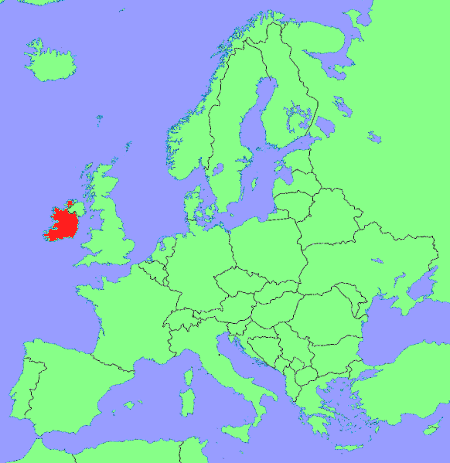
Circle the area on this map

B. British leaders are trying to figure out how to leave economic and political union after voters this year said they wanted to quit the EU. Many are worried the United Kingdom’s economy will suffer by leaving the EU’s common market, but others say EU rules have been harming British business.
A. Brussels is the capital of Belgium, the de facto capital of the EU and headquarters of the North Atlantic Treaty Organization (NATO). Belgium along with France, Germany, Italy, Luxembourg and the Netherlands were the founding members of the EU.
D. The EU ruled all of these nations made “sweetheart” tax deals with multinationals that are unfair and illegal.
D. Politicians who often complain about corporations using foreign countries to avoid US taxes have been quick to defend Apple and other US companies against EU tax rulings. Taxes paid to other nations can cut how much the US can collect from those big multinationals.